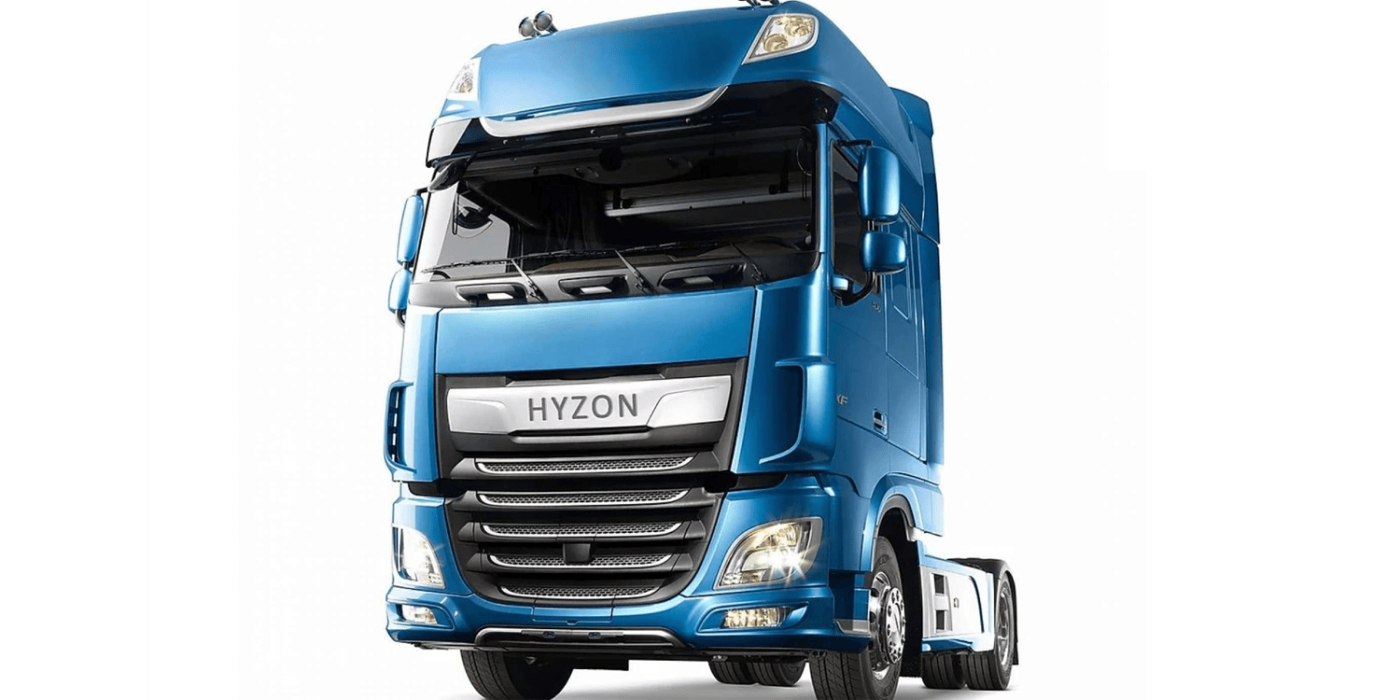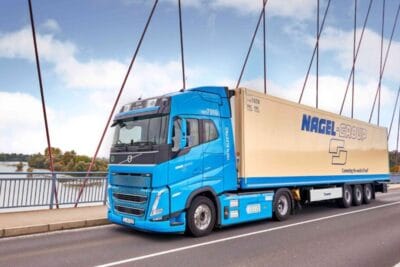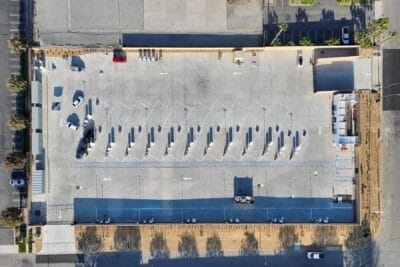Hiringa Energy orders 1500 hydrogen fuel cell trucks from Hyzon Motors for New Zealand
US developer of fuel cell commercial vehicles, Hyzon Motors, has received a major order from hydrogen specialist Hiringa Energy from New Zealand. The customer is ordering a total of 1,500 fuel cell trucks over the next five years till 2026.
++ This article has been updated. Kindly continue reading below. ++
Hyzon Motors says the first examples are to be put into service as early as the end of 2021. The trucks will be built in a 6×4 configuration, have a sleeper cab option, have a gross vehicle weight (kerb weight plus maximum payload) of 58 tonnes and a range of 680 kilometres. The hydrogen fuel cell trucks for New Zealand will be assembled at Hyzon’s European site in Winschoten in the Dutch province of Groningen.
As part of the agreement, Hiringa will also set up a network of hydrogen filling stations in New Zealand. The network is to grow to eight hydrogen filling stations on the North and South Islands of New Zealand by 2022 and to keep expanding the network to at least 24 stations by 2025 making sure there is coverage for 95% of all heavy vehicle routes throughout New Zealand. Only green hydrogen is to be used. Hyzon speaks of the “ambitious journey to decarbonise New Zealand’s heavy transport sector”, which also involved other leading New Zealand brands.
The New Zealand government recently contributed $20 million towards the establishment of Hiringa’s nationwide refuelling network. The New Zealand government is committed to zero-emission transport. Just this week we reported on another funding round from the New Zealand government for zero-emission transport projects. In one of these projects, Hyundai, which only recently released its international strategy for fuel cell trucks, will be purchasing and deploying five of its hydrogen fuel cell electric trucks.
“We see New Zealand as an attractive market for the deployment of our hydrogen fuel cell technology,” says Hyzon CEO Craig Knight. “This partnership aims to position New Zealand as a global leader in the adoption of zero-emission heavy vehicle technology. In addition, the deployment of 1,500 fuel cell trucks by 2026 will make a massive contribution to local decarbonisation efforts.”
Andrew Clennett, CEO of Hiringa, adds that they will work together to drive down the cost of the technology and enable New Zealanders to adopt zero-emission heavy-duty transport widely.
Hyzon Motors is currently going from strength to strength. The US company only started operations in March 2020, opened its European headquarters in July, announced an investment of an unknown amount by the energy group Total and other investors in autumn, and announced its IPO a few days ago.
Technical data on the fuel cell trucks built in Europe have not yet been revealed. However, Holthausen Clean Technology is to construct the Hyzon trucks based on DAF’s XF Space Cab tractor unit to produce the trucks in the Netherlands and the USA. Previously published pictures of the Hyzon truck for Europe show the DAF model with a slightly modified front and large Hyzon lettering.
In the USA, Hyzon wants to manufacture the fuel cell drives in its plant in Rochester (New York State). The assembly of its own futuristically designed trucks and buses will then be done by partners.
At the time of its launch, Hyzon Motors already said that it was aiming for global sales of its fuel cell vehicles and had already signed “a number of significant agreements” in the USA, the EU and Australia to support the supply of green hydrogen for the vehicles. At the time, the new manufacturer said it planned to sell 2,000 “heavy-duty” vehicles within three years. The capacity of the US plant in Rochester, New York State, should be increased to up to 10,000 units per year, depending on demand.
Update 04 November 2021
Hiringa Refuelling New Zealand has commenced building the first four green hydrogen refuelling stations for the heavy-duty trucks the company has ordered from Hyzon Motors earlier this year. These will form part of a nationwide refuelling network.
As reported above, Hiringa intends to grow the network to eight hydrogen filling stations on the North and South Islands by 2022 and keep expanding the network to at least 24 stations by 2025, ensuring coverage for 95% of all heavy vehicle routes throughout New Zealand.
hyzonmotors.com, hiringa.co.nz, hyzonmotors.com (both update 04 November ’21)





7 Comments